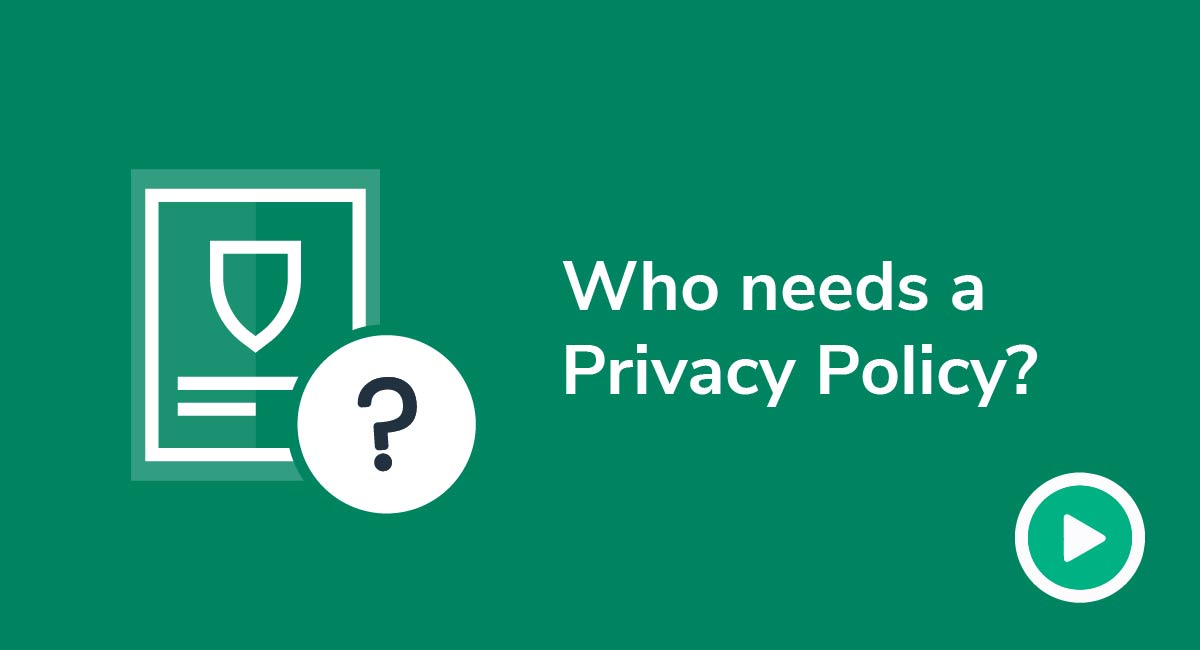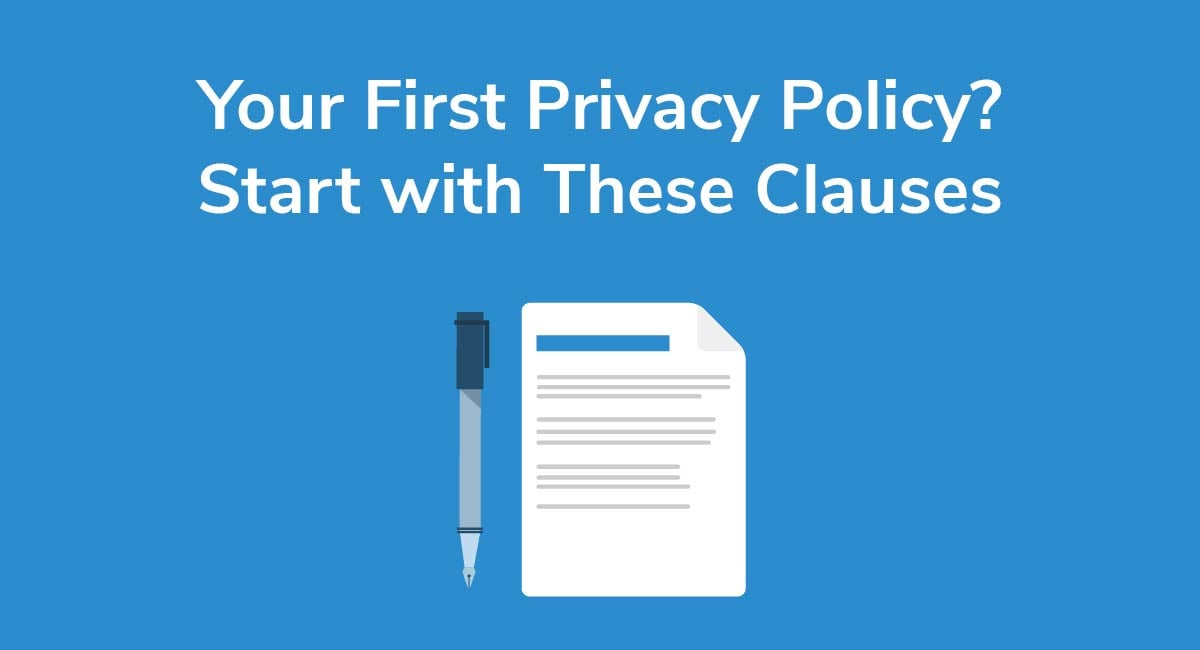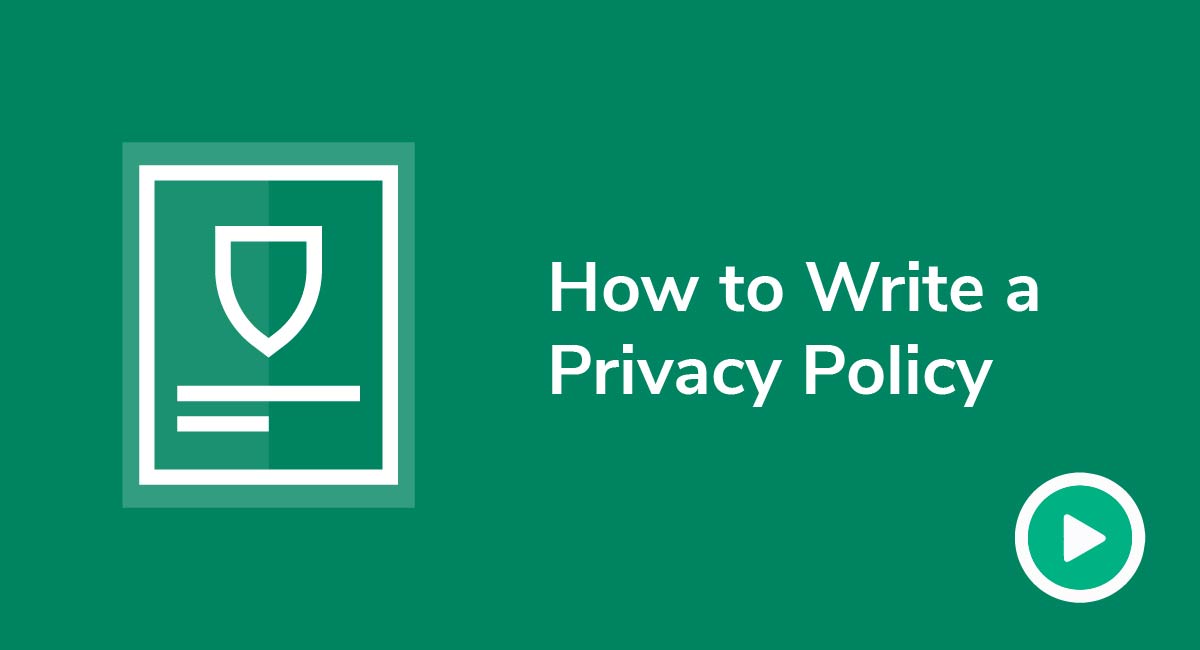Video: How Can I use a Privacy Policy Template
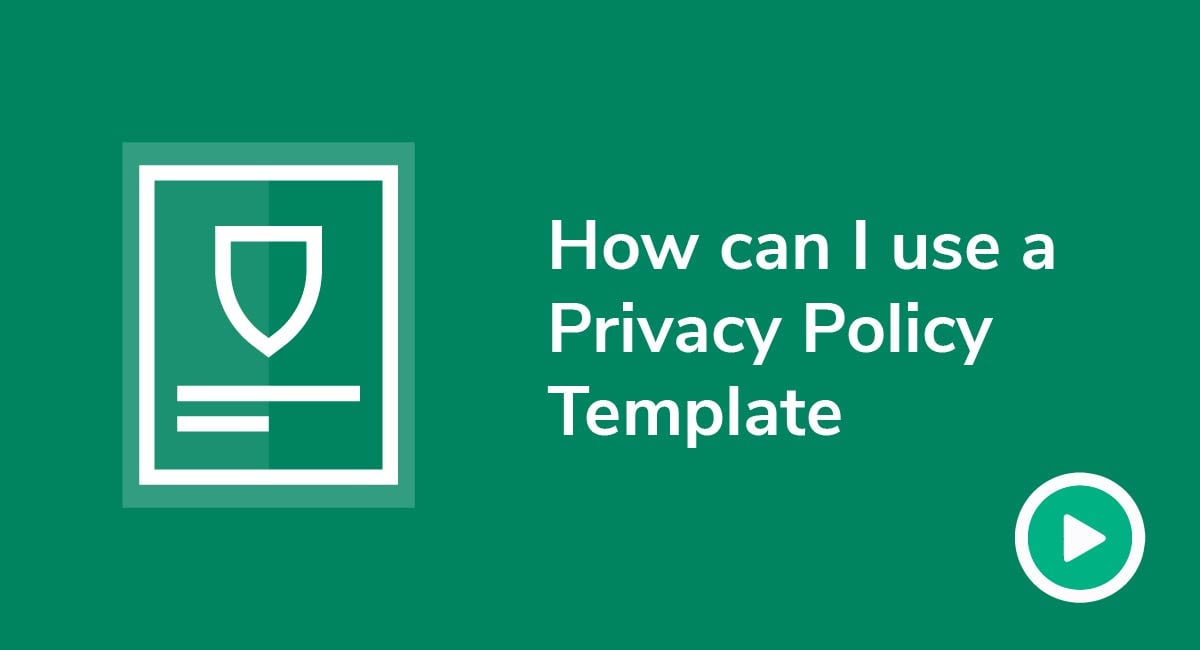
Privacy Policies can seem complicated to understand, let alone create yourself, but we're here to uncomplicate things for you.
In today's video, we'll give you more clarity on what Privacy Policies are and how you can use our Privacy Policy generator and templates to simplify and uncomplicate everything. So if you're interested in learning more, then stay tuned.
Hey everyone, it's Heleana here, and welcome to Privacy Policies, the place where you can generate custom-made Privacy Policies in seconds to help keep your business safe.
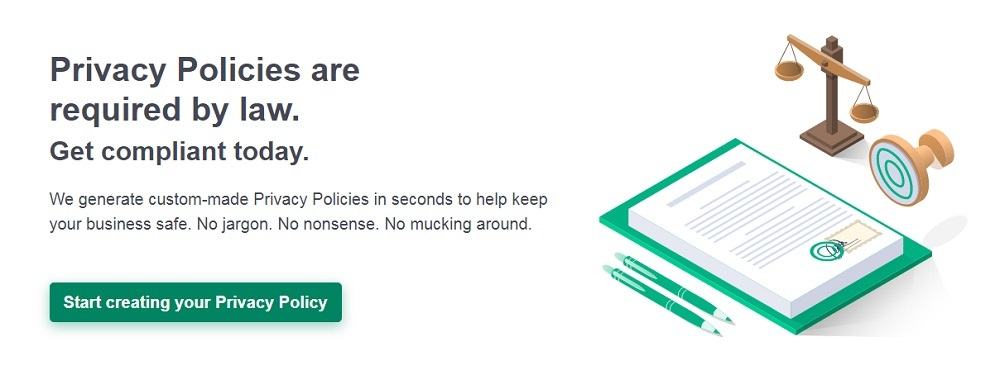
So let's jump right into it.
What is a Privacy Policy?
A Privacy Policy is a statement or a legal document that states how a company or website:
- Collects
- Handles, and
- Processes the data of its customers and visitors
It explicitly describes whether that information is kept confidential, or is shared with or sold to third parties.
Personal information about an individual may include the following:
- Name
- Address
- Email address
- Phone number
- Age
- Gender
- Marital status
- Race
- Nationality
- Religious beliefs
In short, a Privacy Policy is where you let your users know all about how you make sure their privacy is respected by your business practices, what kind of information you are collecting and storing about them, and how you intend to use it.
Am I required to have a Privacy Policy?
If you're collecting personal data of any kind from your users, then the short answer is yes, you're going to need a Privacy Policy in place on your website for your users to find out this information.
Personal data is critical to the person it belongs to. From credit card numbers and social security numbers to email addresses and phone numbers, our sensitive, personally identifiable information is important. This sort of information in unreliable hands can potentially have far-reaching detrimental (or something like that) consequences.
This is why companies or websites that handle customer information are required to have and publish their Privacy Policies on their business websites.
Around the world, laws and regulations have been developed for the protection of a user's data. From Europe's GDPR and California's CPRA, to Canada's PIPEDA, each one has high standards for their people's rights to privacy.
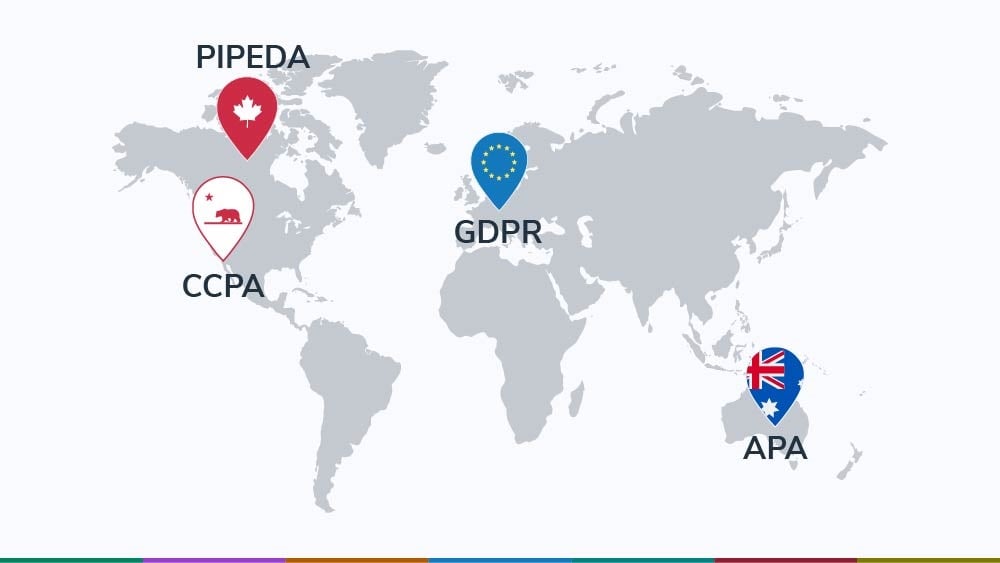
There are several reasons for a website to post its Privacy Policy on its website:
- Firstly, it's required by the law
- Secondly, it is required by many third party services
- Thirdly, it Increases transparency for your users
Take, for example, an excerpt from Pinterest's Privacy Policy that clearly describes the information Pinterest collects from its users as well as from any other source that users enable Pinterest to gather information from:
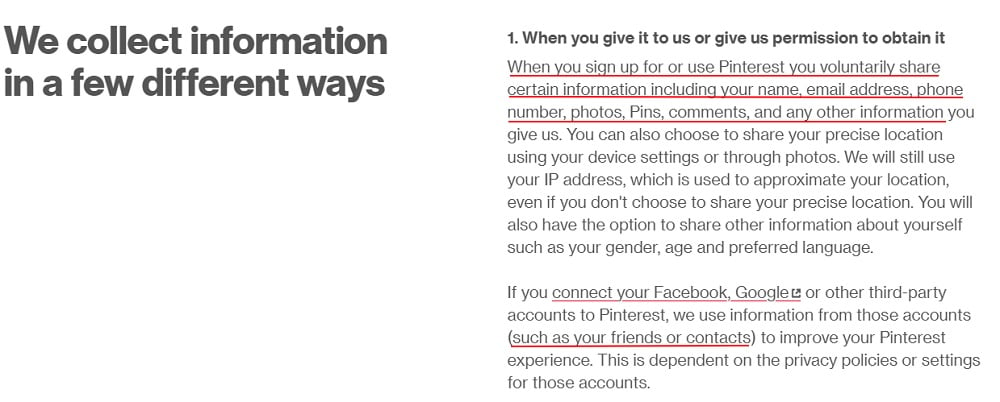
The information that the user voluntarily gives includes names, photos, pins, likes, email address, and/or phone number etc., all of which is regarded as personal information.
For individuals to feel comfortable sharing their personal information on the internet, there should be some sort of legal responsibility on a business' end to protect that data and keep the users informed about the status and privacy of their information.
Where can I find a suitable Privacy Policy template? (ie. Google, various generators)
With a quick Google search, you'll find that there are various Privacy Policy generators that you can use online. Just search for the term "Privacy Policy template" and you'll be presented with different options and use the one that best suits you.
Some templates are easier to use than others. We recommend that you find a Privacy Policy generator that covers all your legal bases and is easy to use, like PrivacyPolicies.com.
How can I use a Privacy Policy template?
Using one of the templates from our Privacy Policy generator is as easy as 1-2-3. All you need to do is modify the data on the template and make sure it's accurate for your website.
To make your Privacy Policy, go to our website www.PrivacyPolicies.com and use our Privacy Policy generator. Simply fill out your website's information and you'll have your agreements ready within 2 to 3 minutes. Give it a try now!
Need a Privacy Policy? Our Privacy Policy Generator will help you create a custom policy that you can use on your website and mobile app. Just follow these few easy steps:
- Click on "Start creating your Privacy Policy" on our website.
- Select the platforms where your Privacy Policy will be used and go to the next step.
- Add information about your business: your website and/or app.
- Select the country:
- Answer the questions from our wizard relating to what type of information you collect from your users.
-
Enter your email address where you'd like your Privacy Policy sent and click "Generate".

And you're done! Now you can copy or link to your hosted Privacy Policy.




And that's it for now. We hope that you found this video on Privacy Policies and how to use Privacy Policy templates helpful and informative.
If you have any more questions related to the topic that we didn't happen to touch on, please leave them in the comments below and we'll get back to you as soon as we can.
Thanks for watching, don't forget to subscribe so you can stay up to date with all our latest videos, and we will see you in our next video.
